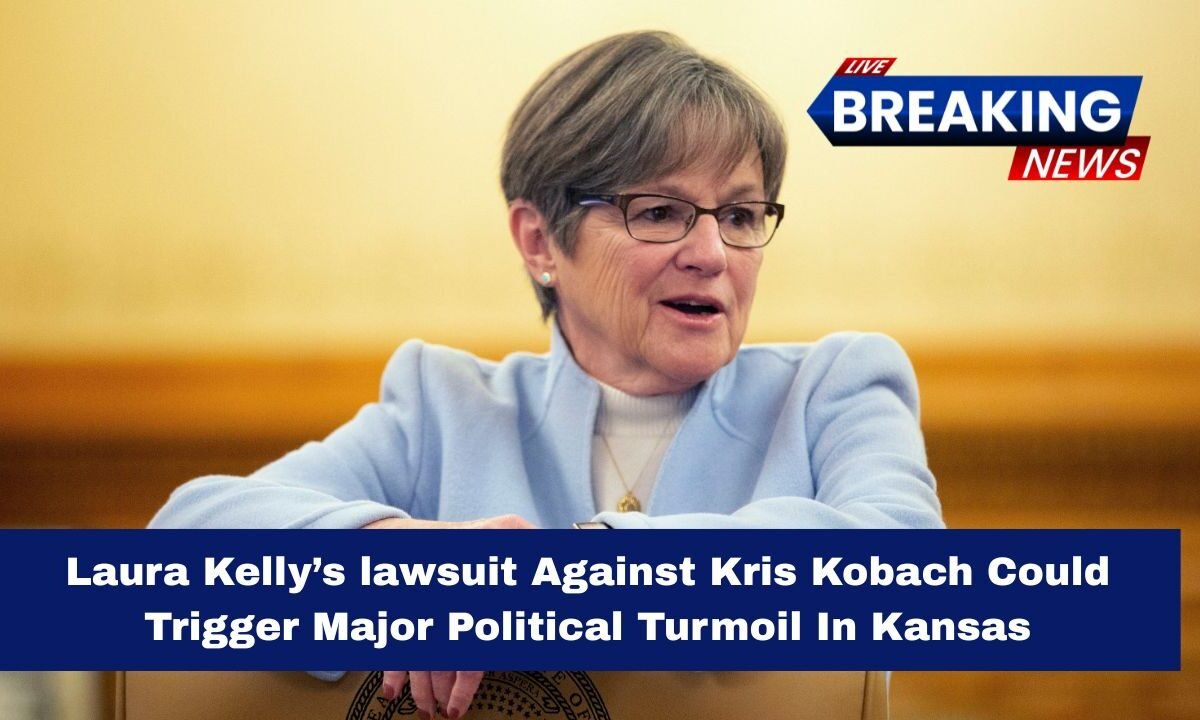Kansas Governor Laura Kelly has filed a landmark quo warranto lawsuit against Republican Attorney General Kris Kobach, arguing that he has overstepped his legal authority.
This rare legal move has ignited a bitter power struggle and threatens to create significant political chaos throughout the state.
The case raises fundamental questions about the balance of power between the governor and the attorney general in Kansas, with potential repercussions for both governance and policymaking.
What Is the Lawsuit About?
Governor Kelly’s petition to the Kansas Supreme Court accuses Kobach of misusing his power by making aggressive legal decisions—either refusing to defend state policies in court or initiating lawsuits on his own terms—that directly conflict with her administration’s priorities. Kelly claims these actions undermine her authority and harm Kansans.
She argues that Kobach’s approach jeopardizes the effectiveness of state government, especially around programs that touch on social services and public welfare.
On the other hand, Kobach defends his decisions, maintaining that the office of the attorney general has broad, independent legal authority under state law and the Kansas Constitution.
He insists he is acting in the public interest and within his rights.
Why It Matters — Stakes and Implications
The dispute is not merely legal — it’s deeply political. Two elected statewide officials, from opposing parties, are locked in a constitutional showdown.
If the court sides with Kelly, it could significantly restrict the AG’s ability to act independently, setting a precedent that future attorneys general (especially from the opposing party) may find limiting.
If the court backs Kobach, it reinforces the power of the attorney general’s office, potentially encouraging more aggressive legal interventions on behalf of the state.
This case could have a domino effect.
A ruling in Kelly’s favor could embolden the governor’s office to overrule or block certain AG-led lawsuits or defenses, while a Kobach win could embolden the AG to take even bolder legal actions.
Both scenarios may reshape how key policies—from immigration to social services—are executed and defended in Kansas.
Timeline & Potential Outcomes
- Court Options: The Kansas Supreme Court could dismiss the petition, accept it for full legal proceedings, or issue an urgent ruling.
- Short-Term Impact: An emergency ruling could immediately curb or affirm Kobach’s decision-making power.
- Long-Term Consequences: A broad ruling either way could redefine the constitutional boundaries around the attorney general’s discretion and alter how the state government regulates legal strategy going forward.
Reactions & Fallout
The reaction to the lawsuit has been sharply divided:
- Supporters of Kelly see the lawsuit as a bold defense of the governor’s constitutional role and a protection of Kansas residents who might be harmed by Kobach’s unchecked legal maneuvers.
- Kobach and his allies argue that the suit is politically motivated, designed to weaken his office and reduce legal checks on Kelly’s policies.
- Legal observers warn that the case is historic: courts may be asked to take on new policing powers over day-to-day executive decisions, something rarely seen in Kansas.
Key Information Breakdown
| Issue | Kelly’s Argument | Kobach’s Counter-Argument | What’s at Stake |
|---|---|---|---|
| Authority | Kobach has misused his legal decisions to undermine the governor | AG has constitutional and statutory independence to litigate as he sees fit | Who controls state legal strategy? |
| Governance | Kelly claims her governance is being blocked or undermined | Kobach says he is protecting the public and acting in accordance with his office | Future balance of power between governor & AG |
| Policy Impact | Kelly worries services and programs could suffer | Kobach is focused on preserving state prerogatives, even in controversial cases | Possible major shifts in policy enforcement and litigation |
Possible Scenarios
- Court Limits AG Power — Could mean Kelly and future governors exert more oversight on legal decisions.
- Court Affirms AG Independence — Gives AG more freedom to file or defend lawsuits without governor interference.
- Partial Compromise — The court might carve out a nuanced middle ground, defining specific areas where the AG must consult or defer, and other areas where the AG retains autonomy.
Potential for Political Chaos
- The lawsuit could trigger heated fights in the state legislature, especially when crafting or defending new laws.
- Ongoing tension might delay agency cooperation, disrupting state programs.
- If either side feels betrayed or sidelined, it could fuel election-year battles, mobilizing bases and influencing future bids for governor or AG.
Governor Laura Kelly’s lawsuit against Kris Kobach is much more than a political skirmish — it is a potential constitutional turning point for Kansas.
As the state’s highest court considers her petition, the stakes couldn’t be higher.
A ruling either way could dramatically reshape executive and legal authority, influencing how Kansas is governed for years to come.
Whether the court rebalances power or reaffirms the AG’s independence, political chaos may be the price of clarity.




